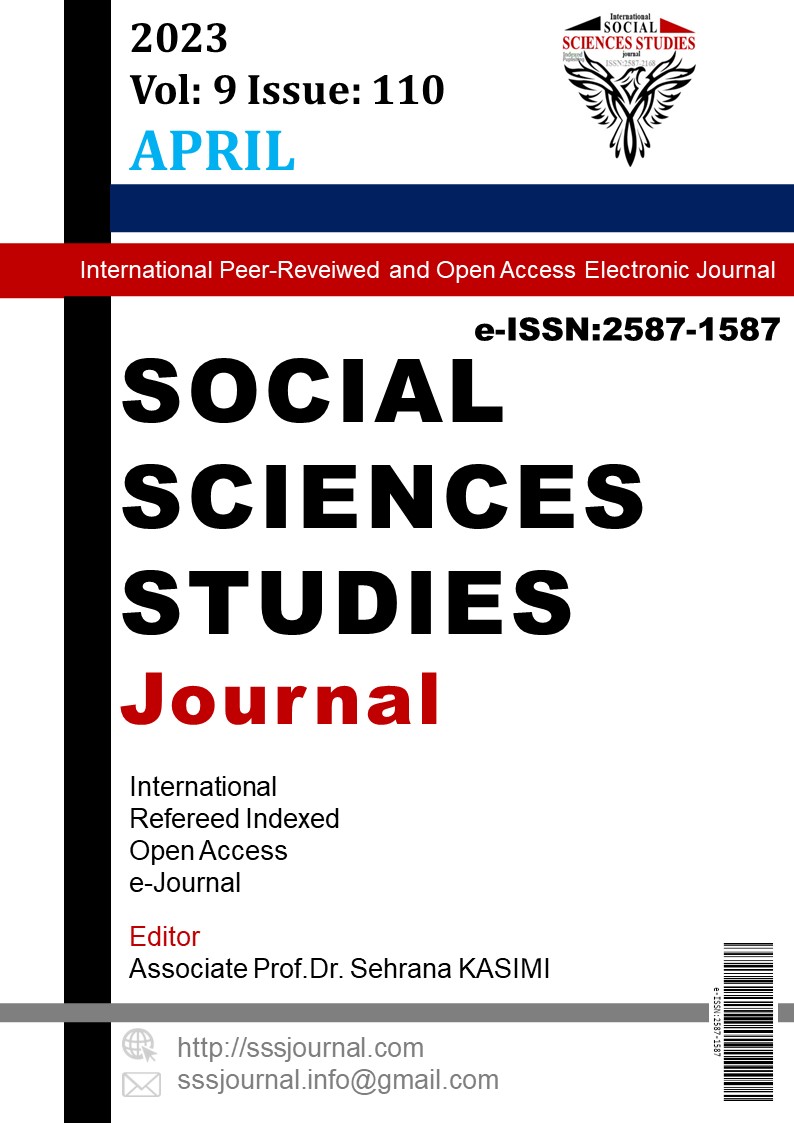Temel Eğitim Okullarında Görev Yapan Yönetici Öğretmen ve Öğretmen Adaylarının Eğitim Yönetimindeki Paradigmaları Benimseme Düzeyleri: Kocaeli İli Örneği
Author :
Abstract
Bu araştırma, temel eğitim okullarında görev yapan öğretmen adayı, öğretmen yöneticilerin eğitim yönetimindeki paradigmaların tespit edilmesi ve öğretmenlerin, öğretmen adaylarının ve yöneticilerin paradigma düzeylerinin belirlenmesi amaçlamaktadır. Bu araştırma da; eğitim alanında yaşanan değişimi ele almış ve pozitivist ve yorumcu paradigmaların incelenmesi, eğitim sürecinde yer alan yönetici, öğretmen ve öğretmen adaylarının eğitim yönetimdeki bu paradigmaları nasıl algıladıklarını ortaya koymayı amaçlamıştır. Bu araştırma betimsel bir araştırma olup, tarama modeli kullanılmıştır. Araştırmanın evrenini Kocaeli İlin de resmi temel eğitim okullarında görevli yapan öğretmen adayları, öğretmen ve yöneticilerden oluşturmaktadır. Araştırma örneklemi için Kocaeli İlinin merkez ilçesi olan İzmit İlçe Milli Eğitim Müdürlüğüne bağlı resmi temel eğitim okulları belirlenmiştir. Kocaeli İli İzmit İlçesinde resmi temel eğitim okullarında 98 kişinin 15’i öğretmen adayı, 33’ü yönetici, 50’i ise öğretmen basit tesadüfî örnekleme yöntemiyle araştırmanın çalışma örneklemini oluşturmuştur.Eğitim yönetimindeki paradigma ölçeği, likert tipi beşli dereceleme türünde hazırlanmıştır Elde edilen veriler SPSS programı yardımı ile üç grubun ortalamaları arsındaki farkın anlamlılığını ölçmek için Tek Yönlü ANOVA kullanılmıştır. Bu araştırmada yöneticilerin eğitim yönetiminde ve eğitimde pozitivist paradigmayı benimseme düzeylerinin daha yüksek olduğu sonucuna ulaşılmıştır. Eğitim yönetiminde ve eğitimde yorumcu paradigmayı benimseme düzeyinin en yüksek olduğu grup ise öğretmenlerdir. En düşük düzey ise yöneticilerdedir. Eğitim yönetiminde okul yönetim süreci boyutunda, okul yönetiminde insan ilişkileri ve iletişim boyutunda, okul yönetim biçimi boyutunda yöneticilerin pozitivist paradigmayı daha çok benimsedikleri; Bu boyutlarda yorumcu paradigmayı ele aldığımızda en yüksek algı düzeyi öğretmenlere aittir. Eğitim sürecinin düzenlenmesi boyutunda ve eğitim-öğretim anlayışı ve uygulamaları boyutunda pozitivist paradigmayı benimseme düzeylerinin en yüksek olduğu grup yöneticiler çıkmıştır Eğitim sisteminde yorumcu paradigmanın hâkim olması isteniyor ise yöneticiliğin profesyonel bir uzmanlık gerektiren bir iş olduğu unutulmamalıdır. Yöneticiler, öğretmenlerin kendi potansiyelini artırmasını sağlayacak eğitim öğretim ortamı sağlamalı ve düzenlemeler yapmalıdır. Yöneticiler, eğitim öğretimdeki tüm paydaşlarla işbirliği içerisinde katılımcı bir yönetim anlayışı sergilemelidir.
Keywords
Abstract
This research aims to determine the paradigms of teacher candidates and teacher administrators working in primary education schools and to determine the paradigm levels of teachers, teacher candidates and administrators. In this study; The aim of this study is to examine the change in the field of education and to examine the positivist and interpretive paradigms, to reveal how the administrators, teachers and teacher candidates who take part in the education process perceive these paradigms in educational administration. This research is a descriptive research and scanning model was used. The universe of the research consists of teacher candidates, teachers and administrators who work in official basic education schools in Kocaeli Province. For the research sample, official basic education schools affiliated to Izmit District National Education Directorate, which is the central district of Kocaeli Province, were determined. In the official basic education schools in Kocaeli Province Izmit District, 15 of 98 candidates, 33 administrators and 50 teachers constituted the study sample of the research with simple random sampling method.The paradigm scale in educational administration was prepared in the Likert-type five-point scale. One-way ANOVA was used to measure the significance of the difference between the means of the three groups with the help of the SPSS program. In this study, it was concluded that the administrators' level of adopting the positivist paradigm in educational administration and education was higher. The group with the highest level of adopting the interpretative paradigm in education administration and education is teachers. The lowest level is in the managers. In educational administration, in the dimension of school management process, in the dimension of human relations and communication in school management, in the dimension of school management, the administrators adopted the positivist paradigm more; When we consider the interpretive paradigm in these dimensions, the highest level of perception belongs to the teachers. The group administrators with the highest level of adopting the positivist paradigm in the dimension of regulation of the educational process and in the dimension of education-teaching understanding and practices were found. Administrators should provide an educational environment that will enable teachers to increase their own potential and make arrangements. Managers should exhibit a participatory management approach in cooperation with all stakeholders in education.





